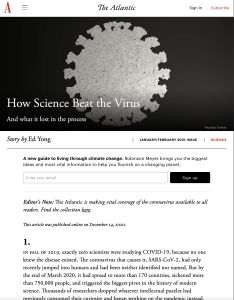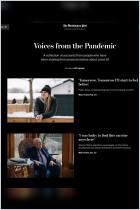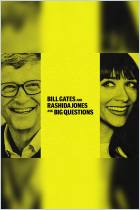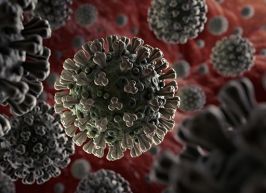Únase a getAbstract para acceder al resumen.

Únase a getAbstract para acceder al resumen.
Ed Yong
How Science Beat the Virus
And what it lost in the process
The Atlantic, 2020
¿De qué se trata?
Ed Yong, writing in The Atlantic, tells how the world’s scientists dropped everything to study COVID-19.
Recommendation
As of late 2019, hardly any scientists studied COVID-19. Research had not isolated the disease or the coronavirus that causes it. By March 2020, COVID-19 had transformed into a full-blown pandemic afflicting close to a million people worldwide, and the world’s scientists reacted. In one of the great gear shifts in modern science history, the world’s scientists dropped everything and focused on COVID-19. In a way that resembles efforts on the Manhattan Project and the Apollo program, the coronavirus pandemic harnessed the world’s scientific energy and skill. Ed Yong, writing for The Atlantic, offers insight, reach and vision for scientists, doctors and public health professionals.
Summary
About the Author
Ed Yong is a staff writer at The Atlantic, where he covers science.




















Comment on this summary